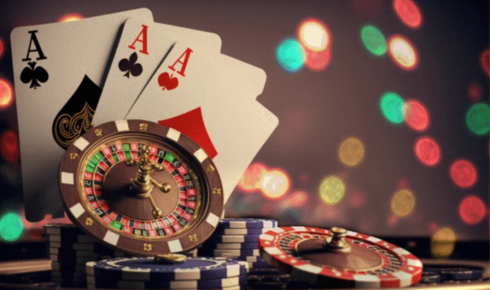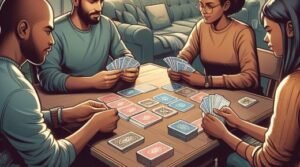Not everything that leaves a mark on a country does so loudly. Some things creep in quietly—like the smell of fresh rain, or the chatter of a tea stall at 7 p.m., or the little superstitions people carry in their pockets. Among these subtle cultural threads is India’s long, complicated relationship with number-based prediction games. And somewhere in that story sits the name almost everyone has heard, even if only in passing: Satta Matka.
It’s strange, isn’t it? A simple game that began decades ago—before smartphones, before the internet, before our lives became flooded with everything instant—still finds a way to linger in conversations. Call it nostalgia, call it curiosity, call it cultural memory. But it’s there.
When Life Was Slower and Excitement Was Earned
If you step back into the India of the 60s, 70s, or even the 90s, things looked a lot more grounded. People weren’t glued to screens; they were glued to each other. Tea shops weren’t just places to sip chai—they were mini social clubs where the day’s gossip blended with laughter, arguments, and sometimes, predictions about numbers.
The earliest form of these games wasn’t glamorous. No bright screens. No dashboards. Just paper slips, handwritten numbers, and a metal pot that determined everyone’s fate for the day. It sounds almost poetic now—the simplicity, the waiting, the feeling of “maybe today is my lucky day.”
This wasn’t really about money for many. It was about having something to look forward to. A small spark inserted into a daily routine that otherwise felt predictable. It’s funny how even a tiny hint of uncertainty can make ordinary days feel alive.
Technology Arrived and The Game Learned To Run
Then the internet swept in and turned everything on its head. Suddenly, predictions didn’t need a neighborhood corner or a dusty table. Everything went digital—effortlessly, maybe a little too effortlessly. The transition was quick, almost ruthless. One moment, people were folding tiny paper slips; the next, everything was happening behind screens.
And somewhere along this journey, the game picked up a modern, more tech-aligned identity—something players today know as SattaMatka. A sleeker name for a faster world.
But modernization didn’t just change the format; it changed the meaning of the experience. There’s no waiting anymore. No gathering. No loud opinions or shared laughter. It’s instant, solitary, convenient—qualities that don’t always leave room for old-school charm.
The Social Side People Don’t Talk About Enough
For those who remember the older days, the fondest memories aren’t tied to winning or losing. They’re tied to people. To evenings spent discussing odds with strangers who felt like friends. To the excitement of a group watching numbers unfold. To the banter, the harmless bragging, the jokes about lucky digits.
These games became little community rituals. A reason to gather. A reason to talk. And sometimes, just a reason to forget your worries for a moment.
That’s the part modern digital versions can’t capture—the human warmth. The feeling of belonging to something, even if it was small. Technology might have added speed, but it definitely stole some of the soul.
But Let’s Not Pretend There Weren’t Risks
Every nostalgic story has a shadow. Number-based prediction games, especially when money is involved, come with serious risks—even if people don’t like discussing them openly. A tiny thrill can quietly turn into a habit. A habit can become a cycle. And the cycle… well, it’s not easy to break.
The emotional rollercoaster was real. One good guess could make someone feel like a genius. One loss could trigger a dangerous chase to “try just once more.” Add digital accessibility into the mix, and the slope becomes even more slippery. What once required physical effort now requires nothing more than a swipe.
It’s important to recognize that truth—not as judgment, but as caution. Because entertainment, when uncontrolled, can easily turn into something heavier.
So Why Does It Still Appear in Conversation?
Because predicting things is deeply human. Whether it’s monsoon dates, election outcomes, cricket scores, exams, job results, stock markets—we love guessing the future. We love feeling like we understand patterns, even where none exist.
That’s why people still refer to the broader culture of Indian Satta in discussions. The term doesn’t necessarily represent active participation; often, it’s just part of a cultural memory, a phrase carried forward like old songs our parents used to hum.
There’s something strangely comforting about the idea of chance—of believing that luck might knock on your door on an ordinary afternoon.
The Digital Future Looks Very Different
If you take a look at the modern landscape, it’s impossible not to notice how sophisticated everything has become. Some platforms resemble financial dashboards. Some feature live data streams. Some use AI-backed tools to create a sleek, futuristic experience.
But even with all these shiny upgrades, the heart of the game remains unchanged. It’s still about unpredictability. Still about emotion. Still about people chasing a small spark.
Technology may shape the game, but it can’t rewrite human psychology.
What These Games Reveal About Us
Strip away the mechanics, and you’ll find something revealing underneath.
Prediction games show us our impulsiveness.
They show our hopefulness.
Our fear of missing out.
Our desire to control the uncontrollable.
They’re less about numbers and more about emotions—how we respond to highs, lows, the in-between moments, and the tempting “maybe next time.”
Understanding that is important. Because it teaches us that not every thrill deserves our peace. And not every habit deserves our time.
A Soft Ending to a Hard Topic
In the end, number games aren’t just games. They’re mirrors. They show us who we are under pressure, under temptation, under hope. Some people treat them lightly. Others lose balance. The difference often lies in awareness, not intention.
As technology pushes these games further into the digital world, one truth remains steady: your well-being, your stability, and your peace will always matter more than any prediction or potential win.
Enjoy stories from the past. Smile at the nostalgia. Learn from the caution. But let numbers stay what they are—just numbers.
Life, with all its unpredictability, offers far richer experiences than any game ever could.






